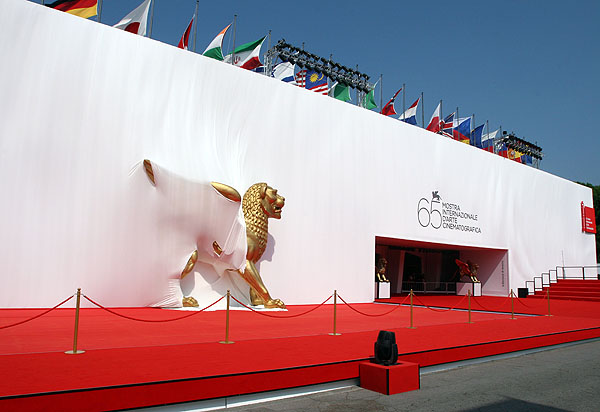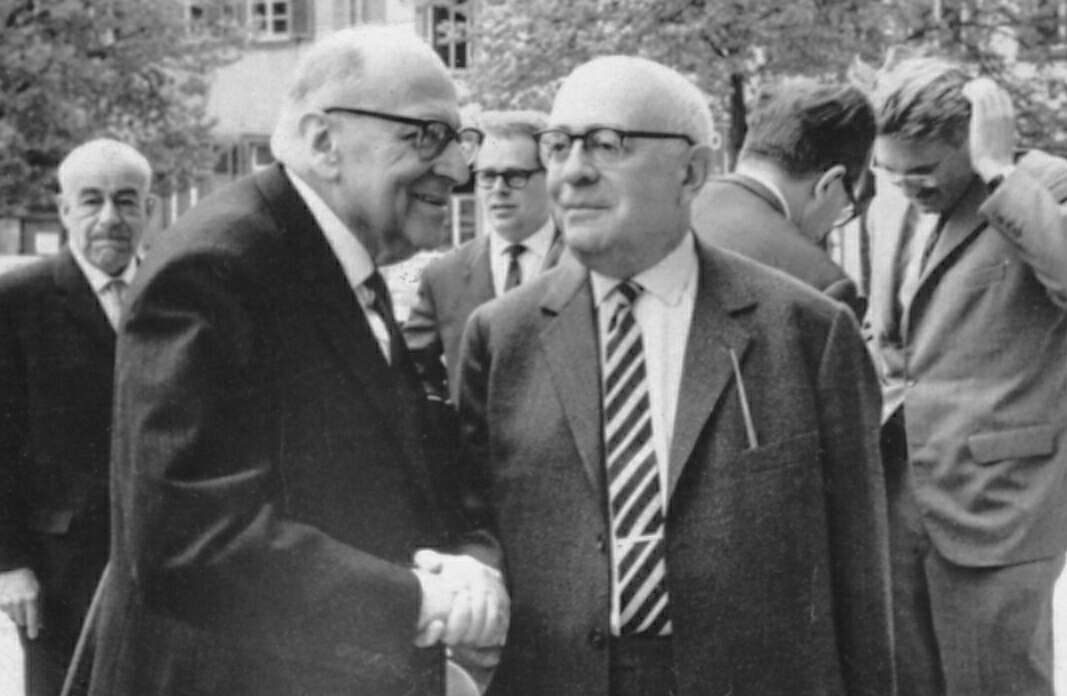|
Nicolaus Richter De Vroe
Nicolaus Richter de Vroe (born 1 February 1955) is a German composer and violinist. Life Born in Halle (Saale), Richter de Vroe studied composition and violin at the Hochschule für Musik Carl Maria von Weber Dresden from 1972 to 1973, and from 1973 to 1978, he studied violin with Vladimir Malinin at the Moscow Conservatory, Tchaikovsky Conservatory in Moscow. From 1980 to 1983 he completed his studies in composition with Friedrich Goldmann at the Academy of Arts, Berlin. He also attended seminars in electronic music led by Georg Katzer. From 1978 to 1980 he worked as a chamber musician and in 1982 he co-founded the Ensemble für Neue Musik Berlin. In 1980 he became a violinist at the Staatskapelle Berlin. Since 1988 he has worked with the Bavarian Radio Symphony Orchestra. In 1989 he founded "Xsemble München". In 1996 he was a co-initiator of the Munich Society for New Music and a guest of the Goethe-Institut, Goethe Institutes of Buenos Aires, Kyoto and Prague. He is a curat ... [...More Info...] [...Related Items...] OR: [Wikipedia] [Google] [Baidu] |
Halle (Saale)
Halle (Saale), or simply Halle (; from the 15th to the 17th century: ''Hall in Sachsen''; until the beginning of the 20th century: ''Halle an der Saale'' ; from 1965 to 1995: ''Halle/Saale'') is the largest city of the German state of Saxony-Anhalt, the fifth most populous city in the area of former East Germany after ( East) Berlin, Leipzig, Dresden and Chemnitz, as well as the 31st largest city of Germany, and with around 239,000 inhabitants, it is slightly more populous than the state capital of Magdeburg. Together with Leipzig, the largest city of Saxony, Halle forms the polycentric Leipzig-Halle conurbation. Between the two cities, in Schkeuditz, lies Leipzig/Halle International Airport. The Leipzig-Halle conurbation is at the heart of the larger Central German Metropolitan Region. Halle lies in the south of Saxony-Anhalt, in the Leipzig Bay, the southernmost part of the North German Plain, on the River Saale (a tributary of the Elbe), which is the third longest rive ... [...More Info...] [...Related Items...] OR: [Wikipedia] [Google] [Baidu] |
Biennale Di Venezia
The Venice Biennale (; it, La Biennale di Venezia) is an international cultural exhibition hosted annually in Venice, Italy by the Biennale Foundation. The biennale has been organised every year since 1895, which makes it the oldest of its kind. The main exhibition held in Castello, in the halls of the Arsenale and Biennale Gardens, alternates between art and architecture (hence the name ''biennale''; ''biennial''). The other events hosted by the Foundationspanning theatre, music, and danceare held annually in various parts of Venice, whereas the Venice Film Festival takes place at the Lido. Organization Art Biennale The Art Biennale (La Biennale d'Arte di Venezia), is one of the largest and most important contemporary visual art exhibitions in the world. So-called because it is held biannually (in odd-numbered years), it is the original biennale on which others in the world have been modeled. The exhibition space spans over 7,000 square meters, and artists from ov ... [...More Info...] [...Related Items...] OR: [Wikipedia] [Google] [Baidu] |
Living People
Related categories * :Year of birth missing (living people) / :Year of birth unknown * :Date of birth missing (living people) / :Date of birth unknown * :Place of birth missing (living people) / :Place of birth unknown * :Year of death missing / :Year of death unknown * :Date of death missing / :Date of death unknown * :Place of death missing / :Place of death unknown * :Missing middle or first names See also * :Dead people * :Template:L, which generates this category or death years, and birth year and sort keys. : {{DEFAULTSORT:Living people 21st-century people People by status ... [...More Info...] [...Related Items...] OR: [Wikipedia] [Google] [Baidu] |
1955 Births
Events January * January 3 – José Ramón Guizado becomes president of Panama. * January 17 – , the first nuclear-powered submarine, puts to sea for the first time, from Groton, Connecticut. * January 18– 20 – Battle of Yijiangshan Islands: The Chinese Communist People's Liberation Army seizes the islands from the Republic of China (Taiwan). * January 22 – In the United States, The Pentagon announces a plan to develop intercontinental ballistic missiles (ICBMs), armed with nuclear weapons. * January 23 – The Sutton Coldfield rail crash kills 17, near Birmingham, England. * January 25 – The Presidium of the Supreme Soviet of the Soviet Union announces the end of the war between the USSR and Germany, which began during World War II in 1941. * January 28 – The United States Congress authorizes President Dwight D. Eisenhower to use force to protect Formosa from the People's Republic of China. February * February 10 – The United States Seven ... [...More Info...] [...Related Items...] OR: [Wikipedia] [Google] [Baidu] |
German Composers
German(s) may refer to: * Germany (of or related to) **Germania (historical use) * Germans, citizens of Germany, people of German ancestry, or native speakers of the German language ** For citizens of Germany, see also German nationality law **Germanic peoples (Roman times) * German language **any of the Germanic languages * German cuisine, traditional foods of Germany People * German (given name) * German (surname) * Germán, a Spanish name Places * German (parish), Isle of Man * German, Albania, or Gërmej * German, Bulgaria * German, Iran * German, North Macedonia * German, New York, U.S. * Agios Germanos, Greece Other uses * German (mythology), a South Slavic mythological being * Germans (band), a Canadian rock band * "German" (song), a 2019 song by No Money Enterprise * ''The German'', a 2008 short film * "The Germans", an episode of ''Fawlty Towers'' * ''The German'', a nickname for Congolese rebel André Kisase Ngandu See also * Germanic (disambiguation ... [...More Info...] [...Related Items...] OR: [Wikipedia] [Google] [Baidu] |
German Classical Guitarists
German(s) may refer to: * Germany (of or related to) **Germania (historical use) * Germans, citizens of Germany, people of German ancestry, or native speakers of the German language ** For citizens of Germany, see also German nationality law ** Germanic peoples (Roman times) * German language **any of the Germanic languages * German cuisine, traditional foods of Germany People * German (given name) * German (surname) * Germán, a Spanish name Places * German (parish), Isle of Man * German, Albania, or Gërmej * German, Bulgaria * German, Iran * German, North Macedonia * German, New York, U.S. * Agios Germanos, Greece Other uses * German (mythology), a South Slavic mythological being * Germans (band), a Canadian rock band * "German" (song), a 2019 song by No Money Enterprise * '' The German'', a 2008 short film * " The Germans", an episode of ''Fawlty Towers'' * ''The German'', a nickname for Congolese rebel André Kisase Ngandu See also * Germanic (disambigu ... [...More Info...] [...Related Items...] OR: [Wikipedia] [Google] [Baidu] |
Wittener Tage Für Neue Kammermusik
The Wittener Tage für neue Kammermusik (Witten Days for New Chamber Music) is a music festival for contemporary chamber music, jointly organised by the town Witten in the Ruhr Area and the broadcasting station Westdeutscher Rundfunk (WDR). The concerts take place over a weekend at the end of April or in early May, and concentrate on world premieres of small-scale works, more than 600 as of 2010.Experiencing Contemporary Music: Wittener Tage für Neue Kammermusik (Festival of Contemporary Chamber Music in Witten) Music Austria, 23 April 2010 [...More Info...] [...Related Items...] OR: [Wikipedia] [Google] [Baidu] |
MaerzMusik
MaerzMusik is a festival of the Berliner Festspiele and has been held annually since 2002 in March at the Haus der Berliner Festspiele and other venues. It is the successor festival to the Musik-Biennale Berlin and is considered one of the most important festivals for Neue Musik in Germany. The artistic director of MaerzMusik is Kamila Metwaly. Musik-Biennale Berlin MaerzMusik is the successor festival to the Berlin Music Biennale. Founded in 1967 in East Berlin, the International Festival of Contemporary Music was organised until 1989 by the and the Ministry of Culture as the Biennale in February. From 1991 to 2001, they were continued under the direction of Heike Hoffmann by the Berliner Festspiele. Many well-known composers premiered during the festival, including Günter Kochan, Georg Katzer, , Ruth Zechlin, Friedrich Goldmann, Johannes Kalitzke and Siegfried Matthus. MaerzMusik In March 2002, the festival took place for the first time for about ten days under the ... [...More Info...] [...Related Items...] OR: [Wikipedia] [Google] [Baidu] |
Donaueschinger Musiktage
The Donaueschingen Festival (german: Donaueschinger Musiktage, links=no) is a festival for new music that takes place every October in the small town of Donaueschingen in south-western Germany. Founded in 1921, it is considered the oldest festival for contemporary classical music in the world, and among the best-known and most prestigious. History In 1913, the ''Donaueschingen Society of Friends of Music'' was founded under the auspices of the House of Fürstenberg. The idea soon arose to establish a small festival for presenting young and promising artists. A committee of distinguished musicians, among them Ferruccio Busoni, Joseph Haas, Hans Pfitzner, Arthur Nikisch and Richard Strauss, met in 1921 to discuss possible formats for the event. The first concert was presented just a few months later. On 31 July 1921 the ''Donaueschingen Chamber Music Performances for the advancement of contemporary music'' (''Donaueschinger Kammermusikaufführungen zur Förderung zeitgenössische ... [...More Info...] [...Related Items...] OR: [Wikipedia] [Google] [Baidu] |
Neue Musik
Neue Musik (English ''new music'', French ''nouvelle musique'') is the collective term for a wealth of different currents in composed Western art music from around 1910 to the present. Its focus is on compositions of 20th century music. It is characterised in particular by – sometimes radical – expansions of tonal, harmonic, melodic and rhythmic means and forms. It is characterised by the search for new sounds, new forms or new combinations of old styles, which is partly a continuation of existing traditions, partly a deliberate break with tradition and appears either as ''progress'' or as ''renewal'' (neo- or post-styles). Roughly speaking, Neue Musik can be divided into the period from around 1910 to the Second World War – often referred to as "modernism" – and the reorientation after the Second World War, which is perceived as "radical" – usually apostrophised as ''avant-garde'' – up to the present. The latter period is sometimes subdivided into the 1950s, 1960s and ... [...More Info...] [...Related Items...] OR: [Wikipedia] [Google] [Baidu] |



